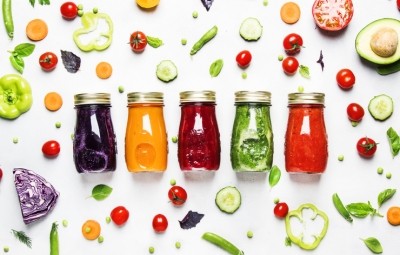Probiotics and botanicals dominating packaged foods in APAC, but greater room for innovation – data

Based on the research completed in August, it was found that probiotic ingredients are used in nearly two-thirds (68%) of packaged foods in APAC this year.
The Asian market is also projected to utilise 44% of the global volume of probiotic cultures as food ingredients.
A key driver of the accelerated use of probiotics in food products is said to be the “K-food wave”, which has brought about the proliferation of fermented foods.
“The growing reputation of cultured food and fermentation, primarily for their digestive health benefits, has supported the wider use of probiotics in various food products.
“From indulgent snacks to fermented products, Korean food has been playing an important role in the internationalisation of diets in Asia. Particularly, kimchi and fermented soybean products are raising consumer awareness of plant-derived probiotics in the region,” said Megumi Matsunaga, food and nutrition consultant at Euromonitor.
Interest in fermented foods is expected to develop further, with industry players capitalising on their probiotic content and associated health benefits.
Additionally, consumers in emerging markets are shifting to modern grocery channels and exploring food as medicine. This has created opportunities for companies to use well-known local ingredients in food products to attract global consumers.
“Asia has the advantage of pre-existing widespread consumption of fermented foods, which are now being converted into packaged solutions that offer added value and differentiated localised experiences. The region represents a bright spot for innovation in probiotics, given its maturity in packaged food applications, compared to the rest of the world.
“Probiotics and botanicals have been identified as rising super ingredients, and they are set to propel packaged foods targeting health and wellness in Asia. For example, K-brands, such as bibigo owned by CJ CheilJedang, are highlighting the benefits of probiotics and promoting digestive health to appeal to export markets like Thailand.”
Spike in well-being claims
In 2023, the APAC region saw the highest demand (USD12.6bn) for probiotic dairy products globally, compared to North America (USD7.2 bn) and Western Europe (USD5.5bn).
Notably, Japan alone makes up nearly 40% of APAC’s demand (USD4.8bn), followed by China (USD3.7bn).
“The perception of probiotic dairy as a combination of indulgent and nutritious, with products providing both good taste and health benefits, has contributed to its success in the region. At the same time, we have observed a surge in sleep and stress relief claims in nutrition categories, especially dairy.
“Claims linked to emotional wellness were historically not at the forefront of claims, unlike physical health benefits. However, the increasing demand for ‘healthy indulgence’ has led to the penetration of these claims, which has in turn justified higher prices and a more premium positioning,” Matsunaga explained.
Evolution of botanical-infused products
Apart from probiotics, botanical ingredients are also anticipated to play a bigger role in food products.
According to Euromonitor, botanical ingredients are estimated to be used in about 40% of packaged foods in 2024.
Natural ingredients, including adaptogenic herbs like ashwagandha and ginseng, have long been incorporated into traditional remedies across Asia.
Due to their health-benefitting properties, botanical ingredients have also been widely developed and applied in nutraceutical products.
Particularly, botanical ingredients linked to mood, relaxation, and sleep have been gaining traction in Asia.
In addition, Asian consumers’ familiarity with the benefits of botanicals is said to be boosted by the popularity of tea in this region. In fact, APAC is the only region where consumption of tea is larger (55%) than coffee.
With growing health-consciousness among consumers, it is opportune to apply botanical ingredients beyond supplements to a greater variety of functional foods.
Furthermore, the thriving healthy indulgence trend reflects “vast potential” for broader innovation and application of naturally functional ingredients in packaged foods.
“The image of botanical ingredients is evolving into a more modern, indulgent, and premium one. Their application in foods can be elevated through more indulgent categories and more premiumised products to appeal to younger consumers.
“For instance, the use of functional botanical ingredients is increasingly diversifying into categories such as snacks. From ginseng-infused cookies and macarons to ice cream with ashwagandha, the speed of innovation [in this sector] is only going to accelerate as product application and variation continue to grow in Asia,” Matsunaga added.










